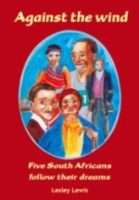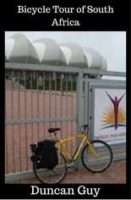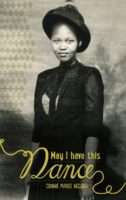Enkosi Kakhulu
If anybody had told me a while ago that I would one day write a book about my life, I would have just laughed. Me – a writer? Who would ever be interested in anything I had to say?
When I read the books of Lutz van Dijk, one of our directors at the HOKISA Children’s Home, who is called ‘Doc’ in my story, I was so impressed that in his books you meet ordinary young people who sometimes do unusual things. They try to change their lives, they try to care for others, they take responsibility for their future.
When I asked him whether he could help me write my story, he said: ‘Are you ready to work hard for it?’ I kept quiet for a moment and he continued: ‘Writing a book is hard work. Maybe you get tired after a while. Maybe you want to avoid painful or sad memories. Are you sure you’re willing to work hard?’
I answered: ‘Yes.’
He then asked: ‘Why, Mbu? Why do you want to write your story?’
‘Because I hope that other kids in trouble can learn from my life: never to give up… to keep on dreaming about a better future. Not to wait for others to do things for you. Never to beg. But always to learn. To work. To try to be the best person possible.’
‘Okay,’ he said, ‘let’s start.’
I admit that I did not write every chapter of this book by myself. We talked, he made notes, I brought him my notes. Then he came with a first draft. I read it and we changed it, and changed it again, until we both agreed on it.
He always said: ‘This is your book, Mbu. Make sure that all is correct!’ And I did. We agreed to change the names of those we could not reach to ask for permission – or those I spoke critically about and did not want to ask permission from, like Gogo.
Sometimes we had to leave things out, as otherwise it would have been a never-ending story. But in the end, I can say: yes, this is my story. This is how I remember it. Others might remember other things.
I am still alive. Not like my best friend, Atie. Or my brother, Mavusi. Nobody will ever kill me.
I don’t yet know what I will do after matric. But I want to achieve something in my life. I will never become dependent on booze or drugs. Never.
For now, I want to thank those who helped me to get where I am today.
First you, Doc. Without you, Lutz van Dijk, I would never have started this book and I would never have finished it. Then I want to thank ‘Ta Simpra’ – Simphiwe Nkomombini, the leader of the HOKISA youth group. You are the best leader I have ever met in my life. Many thanks also to all the other adults and children at HOKISA. My first real home ever. I want to thank the social workers, Karen and Nomfuneko. Because of you, I am not afraid of social workers anymore. I want to thank my Aunt Nompumelelo. I hope one day you will believe in me again. And my uncle Vukile for being generous despite being poor – just this.
Thank you to my mother for my first school uniform. I want to thank all my teachers, but especially ‘Mrs Naki’ (in real life, Mrs Ngqabi), my present teachers at Masiphumelele High School, and the principal of Ukhanyo Primary School, Mr Thyali, and of Masiphumelele High School, Mr Mafrika. You have given me confidence that I can learn. We need many more teachers in South Africa like you.
Thank you also to my late brother Mavusi. He was the best brother one can imagine for the first few years of my life. And above all, my gratitude goes to my best friends, Yamkela Dangisa (who will be a famous musician one day) – and Atie Rwanqa.
I will never forget you, Atie – asoze ndiku libale.
Mbu Maloni,
Masiphumelele,
April 2011
***
About HOKISA Children’s Home – HOKISA Ikhaya Lethu
HOKISA is a South African NGO which has been working for children and youth affected by HIV/Aids since 2001. It was founded by Karin Chubb, senior lecturer at UWC (now retired) and Dr Lutz van Dijk, German-Dutch teacher and writer.
The HOKISA Home in Masiphumelele, Cape Town, was opened on World Aids Day 2002 by Archbishop Desmond Mpilo Tutu. It is a house with a garden and a large playground, open to all township children. A second home for teenagers and young adults was built in Masiphumelele in 2005. All royalties from this book go to Mbu Maloni to support his future training or studies. If you want to know more about HOKISA, please visit our website: www.hokisa.co.za






